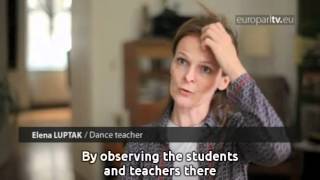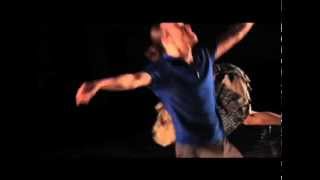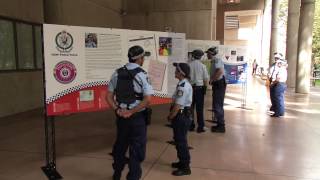Thursday, 15 January, 2026г.
















Где искать: по сайтам Запорожской области, статьи, видео ролики
пример: покупка автомобиля в Запорожье
Reporter: 25 years of Erasmus programme
Happy birthday, Erasmus! The European student exchange programme is already 25 years old. It has clocked up 3 million stories of encounters and discovery. The Parliament is now working on a Commission proposal to create an Erasmus for All in 2014 with a budget of 19 billion euros. EuroparlTV takes stock. 25 years of Erasmus is a mosaic of stories. But 3 million participants in 25 years is ultimately not much compared to the number of students and teachers who might benefit from it. Yet all gain from it a lasting memory and considerable assets. Piroska Bakos realised her childhood dream of presenting the news on Hungarian national TV. At 23, she received an Erasmus grant to study mass media in Frankfurt, Germany. I became more self-reliant than I had been before, and I had to find my way around in all kinds of difficult situations. This of course helped me a lot in my job as a journalist later. Resourcefulness, but also knowledge of foreign languages. It was a huge boost to my career since at the time there were only a few people in Hungarian television who could speak German so well. Tomás Sánchez López crossed Europe, leaving his country, Spain, to go to Finland. A real contrast that was the starting point of his career. He now works in the Research and Technology unit of EADS, the European aerospace and defence corporation. It wouldn't have been possible to get this job if I hadn't had previous research experience. I couldn't have gone to Cambridge without my doctorate in Korea, and I could not have gone to Korea if I hadn't had the Erasmus experience. Not to mention its significance to his love life. I'm married to someone from a different country, who is not Spanish. I would never have met her if I hadn't been to Finland. The classic Erasmus programme which covers 33 countries helps open horizons. Elena Luptak teaches dance at the University of Vienna. Erasmus allowed her to discover a different way to dance, in Turkey. By observing the students and teachers there I discovered the vivacity they feel. That's what I brought back from Istanbul. In my life, I feel it's important to open borders between nations and people. Rather than seeking out differences, let's look at what we can learn from others, what ideas we can take away with us. But 25 years after its launch, Erasmus still has shortcomings. We visited the offices of the independent Erasmus Student Network which strives to improve the programme. The two main obstacles that students face are, on the one hand, academic recognition, because PRIME, our study within the ESN, proved that only 73% of students have their studies abroad fully recognised at home. And the other main problem is the funding of the studies abroad, as many students still see it as a major obstacle to benefitting from time abroad. In expanding to Erasmus for All, will the programme resolve these issues? From 2014, the seven education, training, youth and sport exchange programmes will become one, Erasmus for All, in the hope of increasing the number of grants. EuroparlTV video ID: 5cbbc2c1-2dc8-43e6-aead-9ffa010ea30d
Похожие видео
Мой аккаунт


 У вашего броузера проблема в совместимости с HTML5
У вашего броузера проблема в совместимости с HTML5


